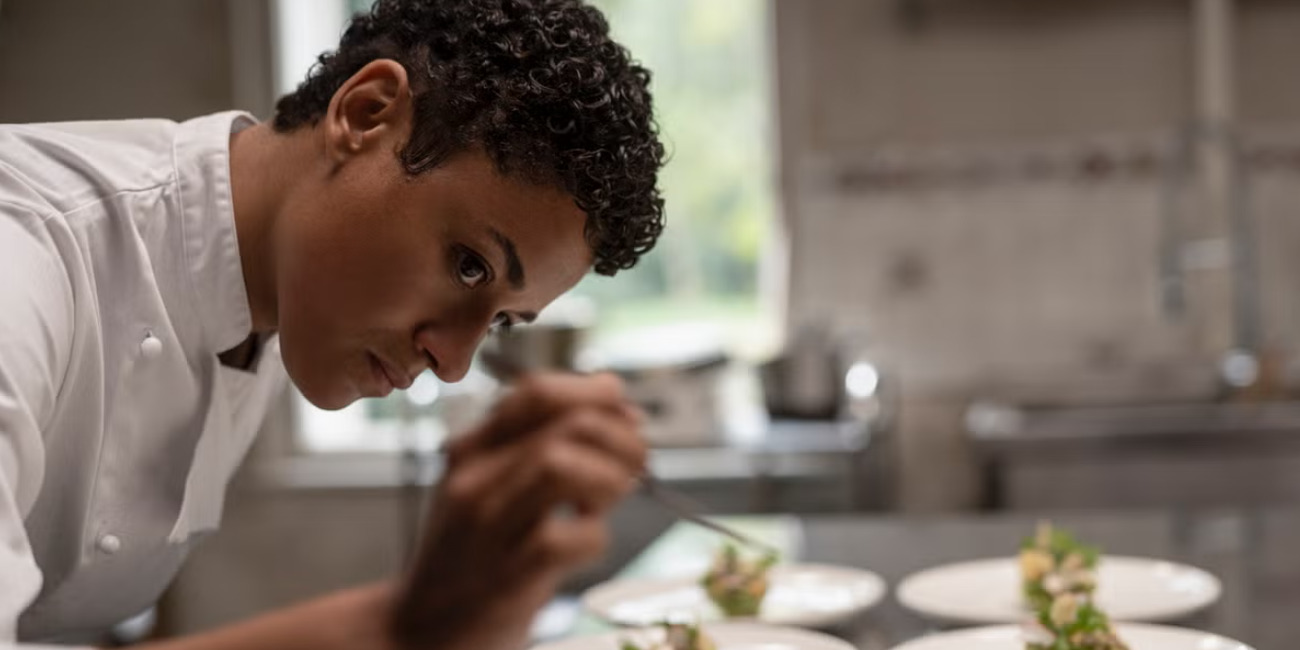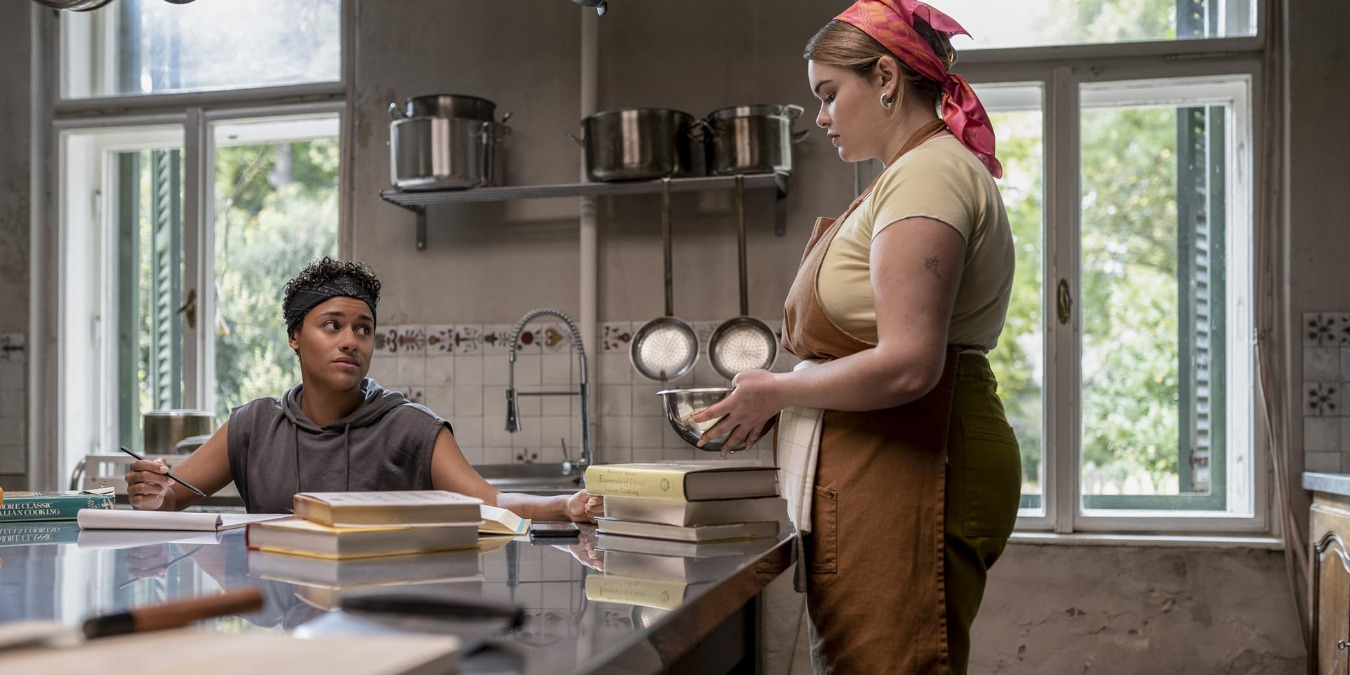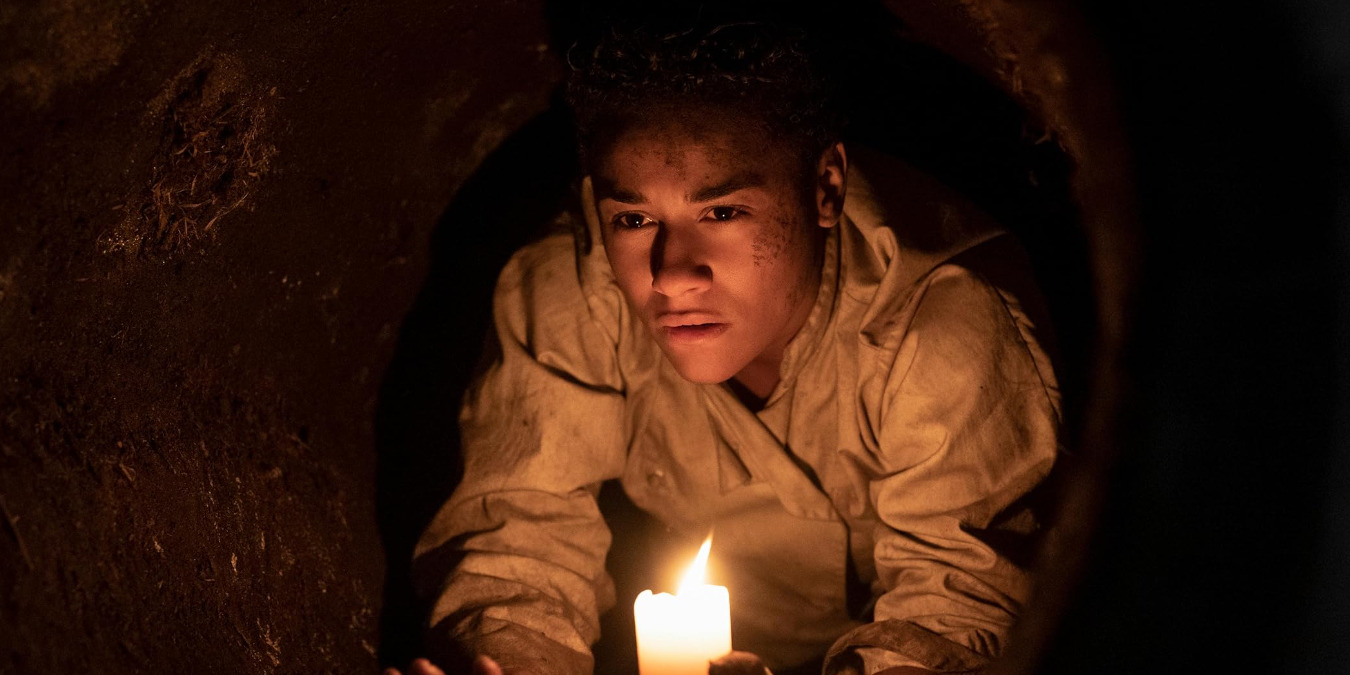Amazon Prime Video’s horror film ‘House of Spoils‘ follows an ambitious chef (Ariana DeBose) whose dedication to the craft is challenged under the roof of a house haunted by the spirit of an alleged witch. After the protagonist quits her stable job to open a restaurant of her own with her business partner, Andreas, she finds herself moving into the old remote home with a cryptic garden in its backyard. However, as she settles in and fixes up the place, she realizes something sinister lingers within the property’s walls. The film presents a compelling “descent-into-madness” narrative that makes the viewers watch it with rapt attention as the protagonist spirals out of control. However, throughout this spiraling, the Chef sports a distinct anonymity — at least when it comes to a given name! SPOILERS AHEAD.
The Significance Behind the Chef’s Obscured Identity
As ‘House of Spoils’ progresses, viewers become intimately acquainted with the protagonist, referred to only as the “Chef.” Despite accompanying the character on a wild ride that exposes all her flaws and insecurities and brings them to the surface, the audience remains in the dark regarding definite details about her. In the horror thriller, Ariana DeBose’s character is always simply the “Chef,” defined through her profession and little else. The same is an intentional tactic equipped to highlight a crucial aspect of the character.

As the film revolves around the Chef’s venture into opening her own restaurant, the narrative dives headfirst into the all-consuming reality of the profession. In order to achieve her dreams, she must give herself entirely to her aspirations, maintaining a single-minded focus on her goal. For the same reason, she lives, breathes, and sleeps cooking in the weeks-long build-up to the opening night of her fine dining destination. Thus, everything the character does — even in her limited recreational time — ties into her profession.
As such, the protagonist lacks a clear identity outside her kitchen — which the narrative further highlights by confining her to the description of the “Chef” throughout the film. Consequently, this showcases her inescapable obsession with her craft as it takes over her entire existence. The decision also reflects the nuances of a superior position in the culinary industry. Much of the narrative’s thematic focus is exploring the toxicity of a typical restaurant work culture. From the fast-paced, demanding hours to the gluttonous investors who suck the authentic joy out of the craft — the profession comes with plenty of pitfalls.

Therefore, by robbing the Chef of her actual name and solely identifying her through her profession, the film scrutinizes the idea of her individualism. Interestingly enough, the apparent witch is the only other central character in the story who receives a similar treatment. Consequently, the two characters mirror each other from the start, equally stripped of their identities in favor of the roles others wish to project onto them. However, both characters go on to make their titles their own — ensuring they embrace their identities as expansively as a given name might.


You must be logged in to post a comment.